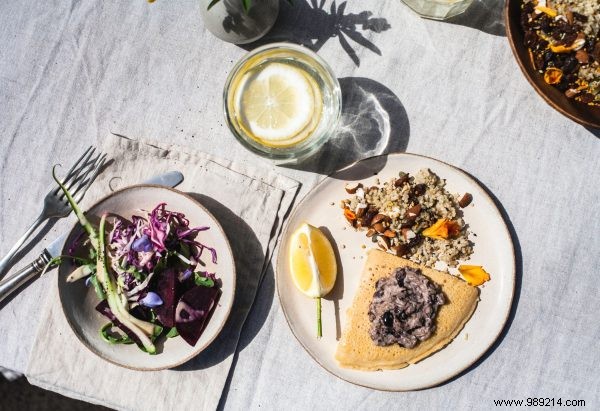
Do you want to start with a plant-based diet? Or have you already tried to make the switch, but it was not (completely) successful? No worries:in this article we discuss 7 common mistakes people make when they start eating plant-based and of course how you can prevent them. Good luck!
Often a certain trigger – a documentary about factory farming or an article about climate change – can prompt you to suddenly start eating plant-based. Although we know that a plant-based diet can be healthy and sustainable, it may not be very smart to suddenly change your diet. If you normally eat little fiber, your intestines will not thank you if you suddenly start eating a lot of fiber. Therefore, start with plant-based food at a pace that suits you and feels good. You don't have to change everything at once, really.
Read also: 'These celebrities swear by a vegan diet'
“Where do I get my proteins from?” is probably one of the most frequently asked questions of people starting plant-based foods. What many people find surprising is that vegetarians and vegans almost always get their minimum recommended amount of protein. In fact, they take in much more than they need. Getting your protein from plants is even better for your health than animal protein. Many meat and fish substitutes contain about the same amount of protein as the products they replace. Other protein-rich plant foods include lentils, beans, tofu, tempeh, seeds and nuts.
Our dietary guidelines are based on diets that contain many animal products. Although a plant-based diet can be healthy and safe, it is important to keep in mind possible deficiencies of certain nutrients. Think, for example, of vitamin B12, vitamin D and iron, as well as iodine and omega 3 fatty acids. With a little more attention and planning, you can get all the nutrients you need with a plant-based diet through a combination of plant-based foods, fortified products and possibly supplements.
When you replace animal products with carbohydrate-rich products, such as pasta and bread, the nutrients you consume every day are no longer in balance. Although pasta and bread can be part of a healthy diet, it is better to replace animal products such as meat, chicken meat and fish with foods that contain proteins, iron and zinc. This includes legumes and products made from them (such as tofu and meat substitutes), but also fruits, vegetables, multigrain products, nuts and seeds.
When we start eating plant-based, we sometimes tend to avoid products that have nutrients added to them, such as fortified plant-based milk. But it can be much easier to get the recommended amount of certain nutrients, such as vitamin B12, vitamin D and calcium, if we do use those products. It doesn't hurt to use these to close the gap that can arise when we change our diet, you only help yourself with that!
If you make a shift in your diet that is also different from the diet of your immediate environment, it can make you feel like you're on your own. So try to connect with people who think the same about nutrition as you do and get the support you need from there. This makes your shift a lot easier, trust us!
Perfection is seriously overrated. Every small step you take to eat more sustainably, friendlier and healthier is a step to celebrate. Be patient and kind to yourself and your family. We all need to move at a pace that feels right and suits us. So don't be so strict with yourself and do it in steps, then you will also get a lot more fun out of it!